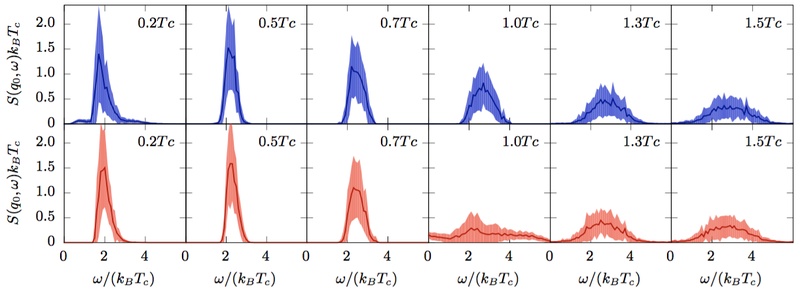Fading of the polaron in a gas of bosons due to temperature effect
Nov 12, 2021
PhD student Gerard Pascual and professor Jordi Boronat of the research group Approaches to the first principles in condensed matter physics: quantum effects and complexity; have published a paper in the journal Physical Review Letters, where it is theoretically described how a polaron, the result of the interaction of an impurity with a gas of bosons in the condensation phase, disappears due to the effect of temperature
Low-temperature boson gas is well known to physicists for the famous and strange phase transition to a zero-moment condensation state (Bose-Einstein condensation). This system is well known and has been observed and performed in the laboratory since the end of the last century. Thanks to this experimental boom, theorists have been interested in how these systems change if we modify them slightly. Specifically, they have wondered what would happen if we added an impurity with some interaction in this ultra-cold gas. That is, how this new particle can affect boson condensate. At zero temperature, where statistical physics is in the background and the system can be fully defined with a wave function, it has been seen that the impurity is surrounded by excitations of the bosons giving rise to a quasiparticle called the "polaron". However, when we add temperature to the system, it is not trivial whether this theoretical image of the free quasiparticle correctly describes the physics of the gas. Several theories have attempted to address this conundrum by giving contradictory results to those observed experimentally. In this article we have recently published we simulate using the method of the Path Integral Monte Carlo how is the thermal evolution of this impurity surrounded by other particles, providing information about how the system behaves when going through the phase transition where the bosons cease to be condensed. The main conclusion of the article is that the theoretical entelechy of the quasiparticle is blurred as we increase the temperature until it disappears completely when we pass the phase transition.


Share: